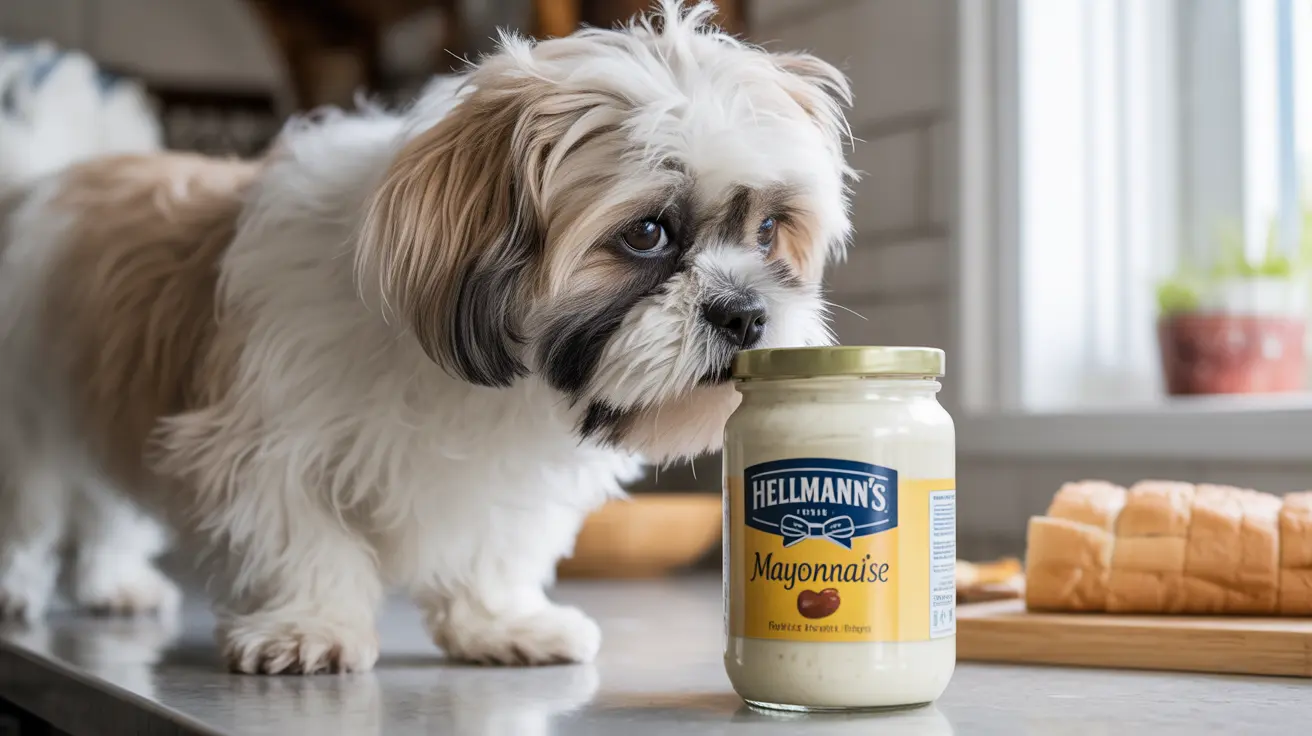If you've ever wondered about sharing mayonnaise with your furry friend, you're not alone. Many dog owners question whether this common condiment is safe or beneficial for their pets. While mayonnaise isn't technically toxic to dogs, veterinary experts strongly advise against feeding it to your canine companion.
In this comprehensive guide, we'll explore the safety concerns, potential health risks, and what you need to know about dogs and mayonnaise consumption. We'll also provide expert-backed alternatives for treating your pet safely.
Understanding Mayonnaise Composition and Dog Health
Mayonnaise primarily consists of oil, egg yolks, and acidic ingredients like vinegar or lemon juice. While some of these components aren't immediately harmful to dogs, the overall nutritional profile makes mayo a poor choice for canine consumption.
The extremely high fat content in mayonnaise (often 70-80% oil) far exceeds the recommended 10-15% fat content in a healthy dog's diet. This dramatic difference can lead to serious health complications, even with occasional consumption.
Health Risks of Feeding Mayo to Dogs
Immediate Health Concerns
When dogs consume mayonnaise, they may experience several immediate adverse reactions:
- Digestive upset and diarrhea
- Vomiting
- Lethargy
- Abdominal pain
Long-term Health Complications
Regular mayo consumption can lead to severe health issues in dogs:
- Obesity
- Pancreatitis (inflammation of the pancreas)
- Diabetes
- Fatty liver disease
- Cardiovascular problems
Special Considerations for Commercial Mayo Products
Store-bought mayonnaise often contains additional ingredients that pose extra risks to dogs:
- Artificial preservatives
- High sodium levels
- Added sugars
- Potentially toxic seasonings (like garlic or onion powder)
What to Do If Your Dog Eats Mayonnaise
If your dog consumes mayonnaise, follow these steps:
- Determine the amount consumed
- Check the ingredient list for toxic additives
- Monitor your dog for adverse reactions
- Contact your veterinarian if symptoms develop
Safe Alternatives to Mayonnaise for Dogs
Instead of mayonnaise, consider these vet-approved treats:
- Plain, cooked chicken pieces
- Small apple slices (without seeds)
- Carrot sticks
- Plain, low-fat yogurt (in moderation)
- Commercial dog treats formulated for proper nutrition
Frequently Asked Questions
Is mayonnaise safe for dogs to eat in small amounts?
While a tiny amount of plain mayonnaise isn't typically toxic, it's not safe for regular consumption due to its high fat content and potential for causing digestive issues and more serious health problems.
What health risks can mayonnaise cause in dogs if fed regularly?
Regular mayonnaise consumption can lead to obesity, pancreatitis, diabetes, digestive problems, and cardiovascular issues. The high fat content is particularly concerning for dogs' health.
What symptoms should I watch for if my dog eats a large amount of mayonnaise?
Monitor your dog for vomiting, diarrhea, lethargy, abdominal pain, and loss of appetite. If you notice any of these symptoms, contact your veterinarian immediately.
Can flavored or homemade mayonnaise be toxic to my dog?
Yes, flavored mayonnaise can be especially dangerous as it may contain toxic ingredients like garlic, onions, or xylitol. Homemade mayo poses additional risks due to potential bacterial contamination from raw eggs.
What are healthier and safer alternatives to mayonnaise for my dog?
Better alternatives include plain, cooked lean meats, small pieces of fresh fruits and vegetables (approved by your vet), or commercially produced dog treats designed to meet canine nutritional needs.
Conclusion
While mayonnaise isn't immediately toxic to dogs, it's clear that it provides no nutritional benefits and poses significant health risks. Instead of sharing this condiment with your pet, stick to vet-approved treats and foods specifically formulated for dogs' dietary needs. Your dog's long-term health and well-being depend on making informed choices about their diet.






